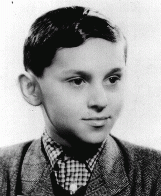You searched for: ��������������������������������������������� ���fuk7778���labor
<< Previous | Displaying results 751-800 of 1002 for "��������������������������������������������� ���fuk7778���labor" | Next >>
-
Samson Reichstein
ID CardSamson was raised by Jewish parents in Tarnopol. His father died when Samson was 13, and Samson went to work to help support his mother and four brothers and sisters. In October 1918 Samson married Kaethe Ert, and the couple moved to Hanover, Germany, where Samson worked as a traveling salesman. Their son Herbert was born in 1920. 1933-39: In 1938 Samson and Kaethe got their son an exit visa on America's Polish quota (since they were Polish citizens). Later that year, the Gestapo came to their door with…
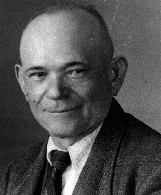
-
Meyer (Max) Rodriguez Garcia
ID CardMax was born to a Jewish family in Amsterdam. He lived in a working-class district occupied by many diamond polishers, of which his father was one. In the 1920s and 30s Amsterdam was a cosmopolitan city with a diverse population. Though his father hoped Max would follow him in the diamond trade, Max dreamed of becoming an architect. 1933-39: Max's happiest years were with close friends in school. His father encouraged him to learn by bringing home newspapers to help his English. After 1933 German Jews…
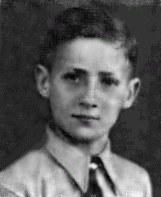
-
Bernard Rechnitz
ID CardBernard was raised by Jewish parents in the small southwestern Polish town of Bedzin. In 1930 Bernard moved with his wife, Ruchla, to the nearby city of Katowice, where he owned a wholesale leather business. The couple lived with their two children, Moses and Genia, in a three-bedroom, upper-floor apartment on Jordana Street. 1933-39: In 1939 Bernard, who was a Zionist, decided the family should emigrate to Palestine [the Yishuv]. His son, Moses, had been the target of antisemitic taunts at school.…
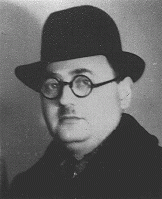
-
Feliks Bruks
ID CardFeliks was the only child of Catholic parents living in Czarnkow, a town close to the German border, some 40 miles north of Poznan. Czarnkow was situated on the Notec River. Feliks' parents owned a mineral water, soda and beer factory. They delivered their goods by horse and wagon to towns throughout the area. His parents also owned a restaurant and 120 acres of farmland. 1933-39: In 1937 Feliks entered the University of Poznan to study pharmacy. His education was cut short when the German army invaded…
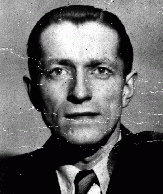
-
Ernest Domby
ID CardErnest's father was a professional musician who toured with a Roma ("Gypsy") band and was often away for several months at a time. At home in Teplice-Sanov, a town in the Sudetenland near the Czech-German border, Ernest's mother took care of Ernest and Elizabeth, his younger sister, and the children's invalid grandmother. Ernest's uncles, Rudolf and Viktor, helped the family. 1933-39: In Teplice-Sanov Ernest was expelled from secondary school for being Jewish—his Uncle Viktor then helped to get him into…
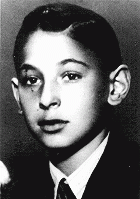
-
Francis Ofner
ID CardFrancis grew up in a city with a Jewish community of 5,000. The Ofners belonged to a synagogue that sponsored many social activities, from sports to care for the elderly. In 1931 Francis began law school at the University of Zagreb. While a student, he organized a service that posted on university bulletin boards the translations of speeches by Nazi leaders broadcast on the radio. 1933-39: By the time Hitler became chancellor of Germany, Francis was heavily involved in trying to unify the university's…
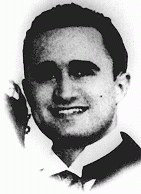
-
Kato Dicker Nagy
ID CardThe fourth of five children, Kato was born to a Jewish family who owned a successful furniture store and lumberyard in Ujpest, five miles from Budapest. As a young girl, Kato enjoyed singing and playing the violin in her family "orchestra" in their large home. She was also athletic, and loved to swim, bicycle and play tennis. Best of all, Kato enjoyed rowing on the Danube with her friends. 1933-39: Newly married, Kato moved to Zagyvapalfalva, a town northeast of Budapest with only five or six Jewish…
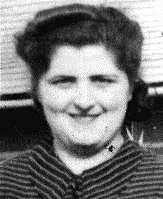
-
Paul Matasovski
ID CardPaul was one of three children born to Jewish parents. They lived in a small city with a large Jewish population in central Moldavia. Paul's Ukrainian-born father had been stationed in Romania during World War I, and chose to remain there rather than return to Ukraine after the 1917 Russian Revolution. 1933-39: Paul's household observed the Jewish holidays. He loved Passover with its special meals and the opportunity to show off new clothes. On the radio his family heard about the Nazis in Germany; in…
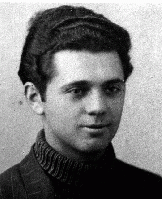
-
Matvey Gredinger
ID CardMatvey was the youngest of three children born to a Jewish family. The Gredingers lived in the town of Vertujeni, which was located in Bessarabia, a region of Romania. His father was a kosher butcher, preparing meat, especially chicken, for sale in his kosher shop. Matvey attended a Jewish school where he studied Jewish history and Hebrew. 1933-39: The Gredingers heard stories from other towns about antisemitic groups, especially the League of National Christian Defense, harassing and sometimes attacking…
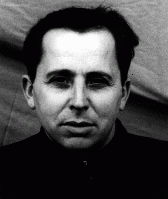
-
Eva Gredinger
ID CardEva was one of three children born to Jewish parents in Vertujeni, a Bessarabian town that was 90 percent Jewish. Eva attended a public school. Her family was religious, attending synagogue every day. Eva's father made his living as a kosher butcher, preparing chicken according to Jewish dietary laws. 1933-39: In 1936, when Eva was 15 years old, her family moved to Vysoka, where she later got a job as a seamstress. Vysoka was very different from her hometown. There were only about 15 Jewish families in…
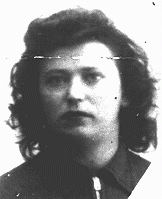
-
Gertruda Nowak
ID CardGertruda was one of five children born to a poor family in the rural community of Zegrowek in western Poland. The Nowaks lived near Gertruda's grandparents. Like their parents, Sylwester and Joanna Nowak, the Nowak children were baptized in the Roman Catholic faith. 1933-39: As a young girl, Gertruda helped with chores around the house, and after school she looked after her younger brothers and sisters. She was 9 years old when the Germans invaded Poland on September 1, 1939. Nazi troops reached Zegrowek…
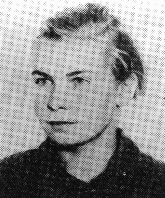
-
Julian Noga
ID CardAlthough Julian's Polish Catholic parents had immigrated to the United States before World War I, his mother had returned to Poland and Julian was born in a village not far from the large town of Tarnow in southern Poland. Julian was raised in Skrzynka by his mother on her four-acre farm while his father remained in the United States. 1933-39: At 16 Julian left home and worked as a dishwasher in an elegant Jewish club in downtown Tarnow. When the Germans invaded in September 1939, he returned to his…
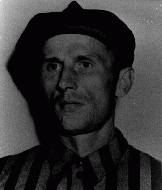
-
Johannes M. Lublink
ID CardJohannes was born to Christian parents and had three brothers and three sisters. His father sold coal for heating systems. By 1933, Johannes was also a coal distributor. Like many other Dutch citizens, Johannes did not approve of Hitler's policies. He especially objected to Hitler's persecution of Jews and Jehovah's Witnesses. 1933-39: Hitler's coming to power in Germany was a threat to all of them. In 1936, Johannes became a Jehovah's Witness. His mother was also a Witness and, by 1938, one brother and…
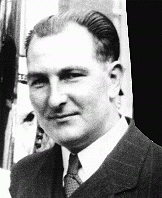
-
Walther Hamann
ID CardWalther was born in the state of Thuringia in east central Germany. Though his parents were Lutheran, Walther became a Jehovah's Witness in 1923. After becoming a master baker and confectioner in 1924, Walther worked in various coffeehouses in Plauen, Magdeburg and Duesseldorf. In 1928 he graduated from a professional school. He married and had two sons. 1933-39: In 1933 Walther became a pastry-making manager at the Cafe Weitz on Duesseldorf's Koenigsallee. The Gestapo arrested him at the cafe in 1937…
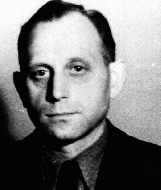
-
Sabina Szwarc
ID CardSabina grew up in a Jewish family in Piotrkow Trybunalski, a small industrial city southeast of Warsaw. Her family lived in a non-Jewish neighborhood. Her father was a businessman and her mother was a teacher. Both Yiddish and Polish were spoken in their home. In 1929 Sabina began public school, and later went on to study at a Jewish secondary school. 1933-39: On September 1, 1939, Germany invaded Poland. Four days later, German troops streamed into Sabina's city. After one month of occupation, her father…
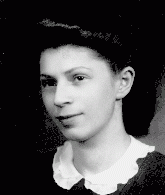
-
Gitla Zoberman
ID CardGitla was the second-youngest of four girls born to observant Jewish parents. They made their home in Sandomierz, a predominantly Catholic town on the Vistula River. Her father owned a small bookstore across from the town hall, selling school texts and novels. Gitla attended public school before enrolling in a Catholic girls' high school. In the winter, Gitla enjoyed skating on the Vistula. 1933-39: In 1937 Gitla moved to Katowice, a large town on the Polish-German border. There, she enrolled in a…
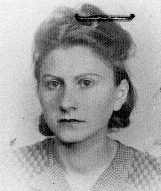
-
Marcus Fass
ID CardMarcus, known to his family as Moniek, was one of three children born to a Jewish family in the Polish town of Ulanow. His father worked as a tailor. Ulanow's Jewish community had many of its own organizations and maintained a large library. From the age of 3, Moniek attended a religious school. He started public school when he was 7. 1933-39: In 1935 Moniek's father left for America to find a job so that his family could later join him. He sent money to them while they waited for their emigration papers.…
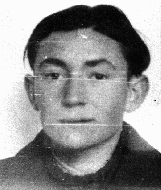
-
Moishe Menyuk
ID CardMoishe was born to a Jewish family in the village of Komarovo, which until 1918 was part of the Russian Empire. At 18, he was drafted into the Russian army and fought in World War I. He was captured by the Germans, and while a POW, learned German. After the war he returned to Komarovo, which by then was part of Poland. He supported his family by farming and managing an estate for a Pole from Warsaw. 1933-39: The few Jews of Komarovo got along well with the Ukrainians. Moishe even played the fiddle at…
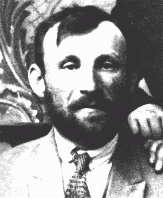
-
Dora Eiger
ID CardDora grew up in the industrial city of Radom, known for its armaments industry. Though fervently Jewish, her Yiddish-speaking parents differed from each other in that her mother was deeply religious while her father was not religious and was an ardent member of the Zionist Labor Party. Also known by her Jewish name D'vora, Dora attended Jewish schools and joined a Zionist youth organization. 1933-39: When Dora visited her uncle near the German border in 1936, she first noticed anti-Jewish placards and…
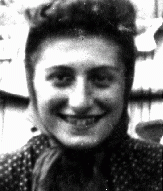
-
Herta Scheer-Krygier
ID CardHerta's Viennese mother and Polish-born father owned a successful men's clothing business in Munich when Herta was born. After Hitler's antisemitic Nazi party attempted to overthrow the German government in November 1923, the Jewish Scheer family moved to Vienna, where Herta's grandparents lived. 1933-39: Hiking was one of Herta's favorite activities. She belonged to the Zionist youth group called Gordonia, and at their meetings the members spoke about creating a Jewish homeland in Palestine. After the…
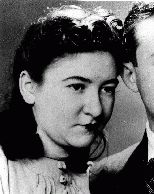
-
Else Rosenberg
ID CardElse, born Else Herz, was one of three children born to a Jewish family in the large port city of Hamburg. Her father owned a grain import-export business. As a child, Else attended a private girls' school. In 1913 she married Fritz Rosenberg and the couple moved to Goettingen where they raised three children. 1933-39: With the onset of the Depression in the 1930s, Else's husband's linen factory went into decline. When the Nazis came to power in 1933, they confiscated the Rosenberg's factory. Deprived of…
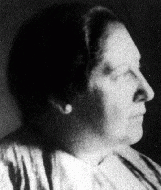
-
Ethel Stern
ID CardEthel was born to a Jewish family living in Warsaw. When she was 9, her family moved to the town of Mogielnica, about 40 miles southwest of Warsaw. Ethel's father spent much of his time studying religious texts. His wife managed the family liquor store. Ethel attended public school during the day and was tutored in religious studies in the evening. 1933-39: Ethel had always wanted to be a teacher. At age 14, after attending religious school in Lodz, she began to teach in the town of Kalisz, where her…
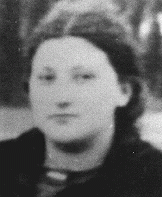
-
Abraham Lewent
ID CardAbraham was born to a Jewish family in the Polish capital of Warsaw. His grandfather owned a clothing factory and retail store, which his father managed. Abraham's family lived in a Jewish section of Warsaw and he attended a Jewish school. Warsaw's Jewish community was the largest in Europe, and made up nearly one-third of the population of the city. 1933-39: After the bombardment of Warsaw began on September 8, 1939, Abraham's family had little to eat. The stores had been reduced to rubble; they had no…
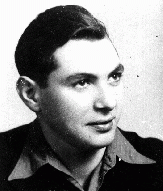
-
Yosel Coller
ID CardOne of six children, Yosel was raised in a religious Jewish family in Lodz, an industrial city in western Poland. His father was a businessman. At the age of 6, Yosel began attending a Jewish day school. His two older sisters attended public school in the morning and religious school in the afternoon. Yosel spent much of his free time playing soccer with his brothers. 1933-39: Yosel's family lived in a modest house in the northern section of Lodz. He went to a Jewish day school and had many friends there.…
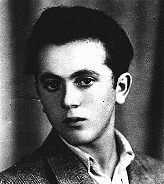
-
Machla Spicehandler Braun
ID CardRaised in Lowicz, Poland, in a religious Jewish family, Machla moved to Lodz when she married Jacob Braun. Her husband worked as a businessman and real estate investor. He became the landlord for an apartment building where he and his family also lived. Machla, a housewife, cared for their five children, who ranged in age from 5 to 15. 1933-39: Machla worked as a volunteer for the Zionist cause. The Brauns were a close family, and Machla's daughters Lena and Eva held their weddings in the Braun's large…
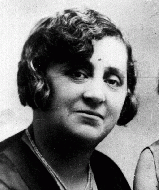
-
Yakob Braun
ID CardYakob's town of Wloclawek was located on the Vistula River. He and his brother Abraham studied Hebrew and German in addition to Polish. Yakob met his bride Machla through a Jewish matchmaker, and after marrying they lived in Lodz. Yakob ran the family textile business until 1938, when he invested in real estate. He became landlord of an apartment building, where he and his family also lived. 1933-39: When the Nazis expelled the Polish Jews from Germany in 1938, Yakob established a relief organization in…
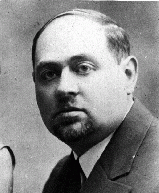
-
Zigmond Adler
ID CardZigmond's parents were Czechoslovakian Jews who had emigrated to Belgium. His mother, Rivka, was a shirtmaker. She had come to Belgium as a young woman to find a steady job, following her older brother, Jermie, who had moved his family to Liege several years earlier. In Liege, Rivka met and married Otto Adler, a businessman. The couple looked forward to raising a family. 1933-39: Zigmond was born to the Adlers in 1936, but his mother died one year later. His father remarried, but the marriage didn't last.…
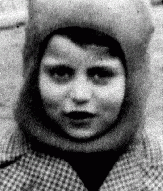
-
Jacob Wasserman
ID CardJacob was the eldest of three sons born to religious Jewish parents in the city of Krakow. His father was a flour merchant. The Wassermans spent summer vacations near Proszowice at a farm owned by their grandfather, who also ran a flour mill. 1933-39: In March 1939, at the age of 13, Jacob celebrated his bar-mitzvah. That summer, his family vacationed as usual at his grandfather's farm. They returned to a nightmare. Krakow had been occupied by the Germans on September 6. Jews were not allowed to walk on…
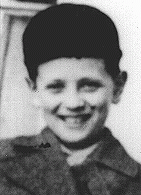
-
Pinchas Gerszonowicz
ID CardPinchas was born into a large family living in the town of Miechow in south central Poland. His father was a machinist and locksmith. Pinchas spent long days studying, either learning Hebrew in the Jewish school or taking general subjects at the public school. He belonged to the Zionist youth organization, Ha Shomer ha-Tsa'ir, and played left wing for a Jewish soccer team. 1933-39: At 13 Pinchas finished school and started work as an apprentice machinist and blacksmith in a building contractor's shop.…
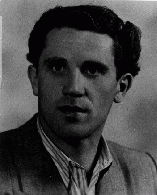
-
Arthur Menke
ID CardArthur was born to a Jewish family in Germany's largest port city, Hamburg. His father owned a small factory that manufactured rubber stamps. In the early 1930s, Hamburg was home to the fourth largest Jewish community in Germany, which had numerous social and cultural institutions. 1933-39: By 1935 conditions for Hamburg's Jews were bad. Arthur's family was moved to another part of town and in 1938, the Nazis seized his father's business. On national holidays many German citizens unfurled red, white and…
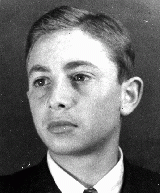
-
Heinz Rosenberg
ID CardHeinz was the youngest of three children born to a Jewish family in the German university city of Goettingen. His father owned a linen factory that had been in the family since it was founded by Heinz's grandfather. Goettingen had a small Jewish population, and only one synagogue. Heinz went to public school in the city. 1933-39: In 1933 the Nazis took power in Germany. A year later Heinz's family's factory was seized. Three SA men came to their house. An officer set a gun on the table and calmly informed…
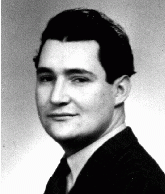
-
Mendel Rozenblit
ID CardMendel was one of six children born to a religious Jewish family. When Mendel was in his early 20s, he married and moved with his wife to her hometown of Wolomin, near Warsaw. One week after the Rozenblits' son, Avraham, was born, Mendel's wife died. Distraught after the death of his young wife and left to care for a baby, Mendel married his sister-in-law Perele. 1933-39: In Wolomin Mendel ran a lumber yard. In 1935 the Rozenblits had a daughter, Tovah. When Avraham and Tovah were school age, they began…
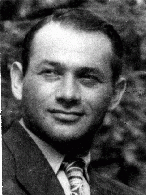
-
Ben Stern
ID CardBen was born to Jewish parents in Warsaw. When Ben was 7, his family moved to Mogielnica, about 40 miles from Warsaw. Ben's father spent much of his time studying religious texts. His wife managed the family liquor store. Ben attended public school during the day and was tutored in religious studies in the evening. 1933-39: After attending school in Warsaw, Ben returned home to help in the family's liquor store. One day, there was a mass demonstration in town. People chanted, "Don't buy from the Jews!"…
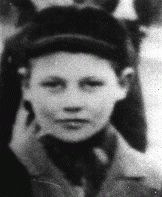
-
Frimit Bursztyn
ID CardFrimit was one of eight children born to Yiddish-speaking, religious Jewish parents. The Bursztyns lived in the heart of the same Jewish neighborhood in Warsaw where Frimit's father owned and operated a bakery located on Zamenhofa Street. In 1920 the Bursztyns moved to a comfortable, two-bedroom apartment in the same neighborhood at 47 Mila Street. Frimit attended Warsaw public schools. 1933-39: By 1939 six of Frimit's brothers and sisters had already moved out. Only Frimit and her younger brother were…
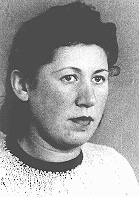
-
Chil Meyer Rajchman
ID CardChil was one of six children born to a Jewish family in the industrial city of Lodz. His mother died before World War II, leaving his father to raise the family. Chil's father could not sustain the family financially, so Chil, as the eldest male child, went to work to help support his brothers and sisters. 1933-39: On September 1, 1939, the Germans invaded Poland. Chil fled Lodz with his younger sister to Pruszkow, a small town 10 miles southwest of Warsaw, where there were fewer restrictions on Jews.…
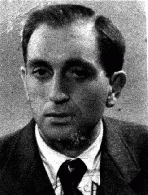
-
Sossia Frenkiel
ID CardSossia and her husband, Isadore, were the parents of seven boys. The Frenkiels, a religious Jewish family, lived in a one-room apartment in a town near Warsaw called Gabin. Like most Jewish families in Gabin, they lived near the synagogue. Sossia cared for the children while Isadore worked as a self-employed cap maker, selling his caps at the town's weekly market. 1933-39: Because of the Depression, Isadore's business had fallen off, but the Frenkiels managed to continue providing for their family.…
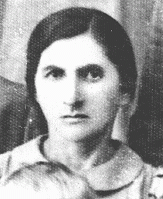
-
Karl Stojka
ID CardKarl was the fourth of six children born to Roman Catholic parents in the village of Wampersdorf in eastern Austria. The Stojkas belonged to a tribe of Roma ("Gypsies") called the Lowara Roma, who made their living as itinerant horse traders. They lived in a traveling family wagon, and spent winters in Austria's capital of Vienna. Karl's ancestors had lived in Austria for more than 200 years. 1933-39: Karl grew up used to freedom, travel and hard work. In March 1938 his family's wagon was parked for the…
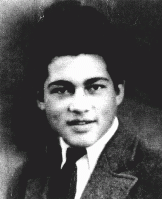
-
Chaim Engel
ID CardChaim's family came from a small town where his father owned a textile store. When antisemitic pogroms broke out in Brudzew, the Engels moved to the industrial city of Lodz. Chaim was then 5 years old. In Lodz he attended a Jewish school that also provided a secular education. After finishing middle school, Chaim went to work at his uncle's textile factory. 1933-39: Chaim's neighborhood in Lodz was predominantly Jewish, so most of his friends were Jews. As a young adult he began his compulsory army…
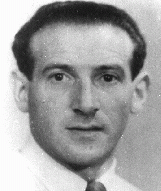
-
Johann (Hansi) Stojka
ID CardHansi, as he was called by family and friends, was the third of six children born to Roma ("Gypsy") parents who were Roman Catholic. The family wagon traveled with a caravan that spent winters in Vienna, Austria's capital, and summers in the Austrian countryside. The Stojkas belonged to a tribe called the Lowara Roma, who made their living as itinerant horse traders. 1933-39: Hansi grew up used to freedom, travel and hard work. He was 9 years old and their wagon was parked for the winter in a Vienna…
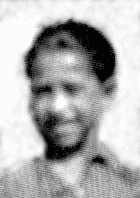
-
Kornelia Mahrer Deutsch
ID CardKornelia was known as Nelly. She was the older of two daughters raised by Jewish parents in the Hungarian capital of Budapest. Her father fought in the Hungarian army during World War I. Kornelia attended public school and later worked as a bookkeeper for a soap factory. In 1928 she married Miksa Deutsch, a businessman who sold matches. 1933-39: Kornelia's husband was religious and the Deutsches' three children attended Jewish schools. Miksa and his brother were the sole distributors in Hungary of…
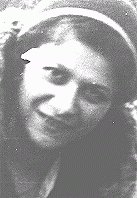
-
Josef Schoen
ID CardJosef was born to German Catholic parents. They lived in a Moravian village near the city of Sternberk in a German-inhabited region known as the Sudetenland. At that time Czechoslovakia was part of the Austro-Hungarian Empire. Upon graduation from a textile school, Josef supervised 600 employees at a silk factory in Moravska Trebova. 1933-39: After serving in the Czechoslovak army, Josef became a Jehovah's Witness in Prague, and refused to have anything more to do with the military, following the…
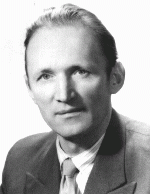
-
Arthur Karl Heinz Oertelt
ID CardHeinz, as he was usually called, was born in the German capital to religious Jewish parents. He and his older brother, Kurt, attended both religious and public schools. His father had died when he was very young. His mother, a seamstress, struggled to make ends meet. She and the boys lived in a predominantly Christian neighborhood. 1933-39: It frightened Heinz when Nazi storm troopers sang about Jewish blood dripping from their knives. But his family didn't have money to leave Berlin. In late 1939 Heinz…
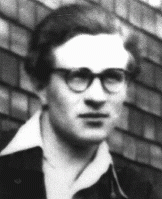
-
Josephine Kohn Dermer
ID CardJosephine, known affectionately as Pepi, and her brother and three sisters were raised in Vienna. Her father traded in furs and her mother was a homemaker. Only a few years after Pepi married, her husband died unexpectedly and she was left to care for their young son, Fred. She and her son moved in with her widowed father. 1933-39: Pepi spent much of her time with her sister Helene. Helene's husband was a Singer sewing machine representative, and in the summer of 1937 Pepi and Fred joined him and Helene…
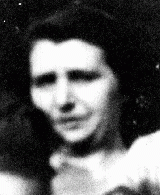
-
Coenraad Rood
ID CardCoenraad was born to a Jewish family in Amsterdam that traced its roots in the Netherlands back to the 17th century. After graduating from public school, Coenraad went on to train as a pastry maker at a trade school. But after completing his training at the age of 13, he decided for health reasons to change professions, and he began to study tailoring. 1933-39: Coenraad finished apprenticing as a tailor in 1937 when he was 20. Then he spent a year working as a nurse in a Jewish home for the permanently…
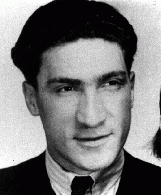
-
Dawid Szpiro
ID CardDawid was the older of two sons born to Jewish parents in Warsaw. His mother supported the family by selling women's clothing. Dawid's father wrote for the Yiddish newspaper Haynt and the journal Literarishe Bleter. The Szpiros lived in the heart of Warsaw's Jewish district, where Dawid and his brother, Shlomo, attended Jewish schools. 1933-39: Dawid graduated from a trade school at the age of 17 and began working as a mechanic. When his father took a job in Argentina in 1937, Dawid and his brother sent…
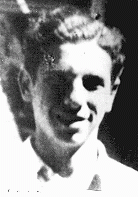
-
Rachela Rottenberg
ID CardThe younger of two children born to Jewish parents, Rachela grew up in Radom, an industrial town located some 60 miles south of Warsaw. One-quarter of the city's 100,000 prewar population was Jewish. Rachela's father was a Zionist and was active in municipal affairs. Her mother did volunteer work. l933-39: Germany invaded Poland on September 1, 1939. On September 5, with the Germans rapidly advancing, Rachela's family sought temporary safety with relatives in Warsaw. They got separated along the way.…
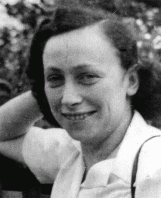
-
Natan Offen
ID CardNatan was one of four children born to religious Jewish parents. They lived in an apartment in Cracow's [Krakow] Podgorze district, a predominantly Jewish area on the southern bank of the Vistula River. Natan's father was a shoemaker until 1936, when he became a dealer in billiards equipment. His mother worked as a dressmaker. Natan and his siblings attended Polish public school. 1933-39: When Natan was 13 he built a crystal radio. Late at night, Natan and his father would listen to stations from all over…

-
Eszter Mendel Braun
ID CardEszter was one of 11 children born to religious Jewish parents in the small town of Hidegkut in eastern Hungary. During World War I her family became refugees and only three of her brothers and sisters survived the war. After the war, she married Jeno Braun, a refugee from the town of Sighet. They settled in the town of Cristuru-Secuiesc in Romania and had six children. 1933-39: Since Eszter could speak many languages, including Hungarian, Yiddish, Romanian, Italian, French, and Hebrew, she felt at home…
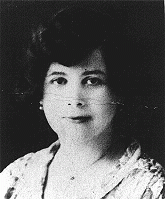
-
Jeno Gabor Braun
ID CardThe son of a rabbi, Jeno was raised in the town of Sighet in Transylvania. The region was multi-ethnic, and Jeno grew up in a family that knew Yiddish, Hungarian, Romanian, German and Hebrew. During World War I, when Sighet was near the front, Jeno's family fled to Hungary. There Jeno met Eszter Mendel, whom he married after the war. The couple settled in the town of Cristuru-Secuiesc in Romania. 1933-39: As a jeweler, Jeno is one of only two watchmakers in Cristuru-Secuiesc; the other is a German who…
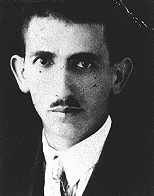
-
Robert Gruber
ID CardRobert was raised by Hungarian-speaking parents in Kosice, a town in eastern Slovakia with a sizable Jewish community of 7,000. The Grubers were a traditional Jewish family and they observed the Jewish Sabbath, dietary laws, and holidays. Robert's father owned a small jewelry shop. 1933-39: When Robert was 5, Kosice was taken over by the Hungarians, who were led by a dictator named Horthy. He stood on the main street with his parents, watching the soldiers march into town in a victory parade. They were…
